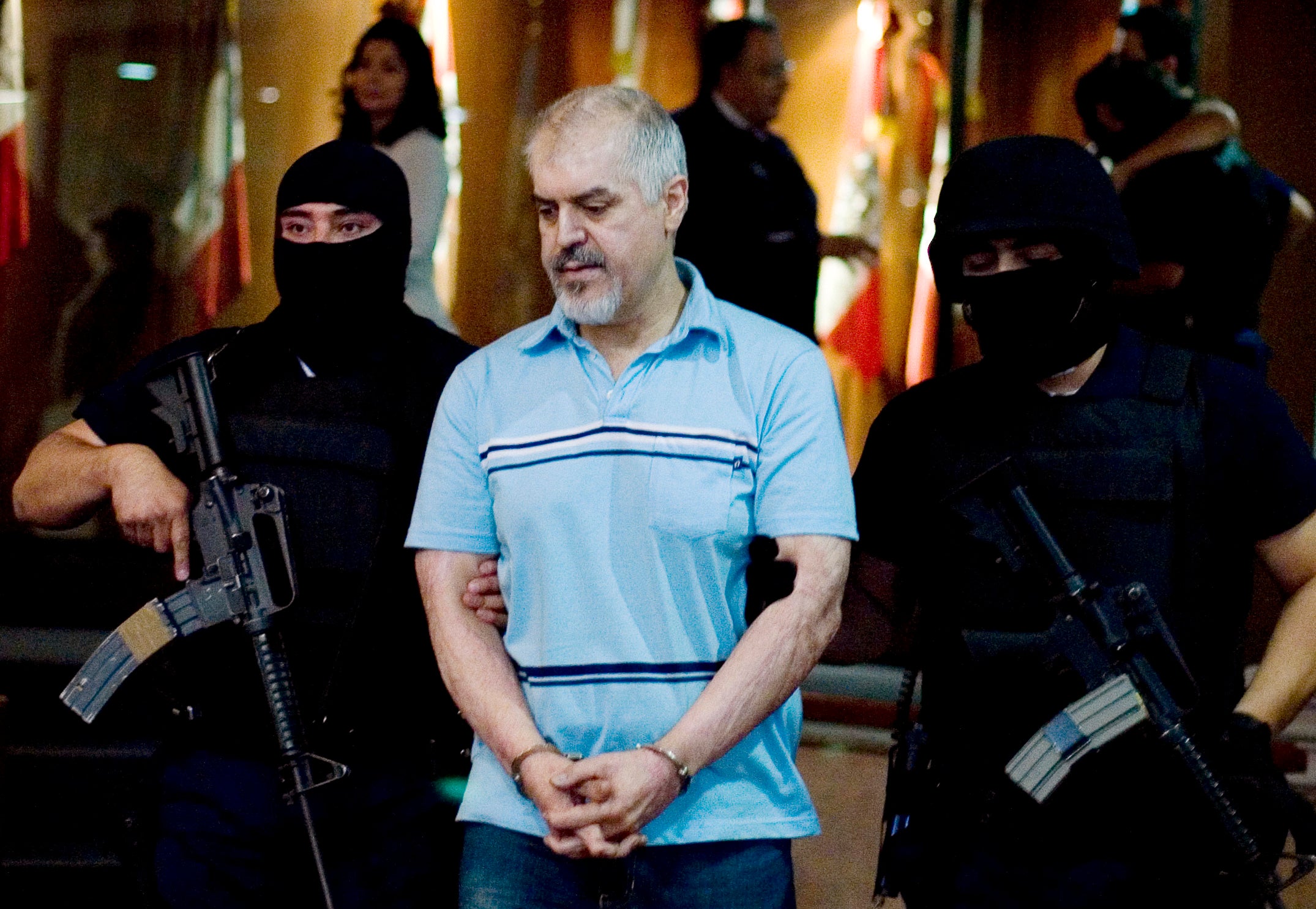US deports Eduardo Arellano Felix, Mexico re-arrests him
One of the notorious Arellano Felix brothers has been deported from the United States back to Mexico after serving most of a 15-year prison sentence

Your support helps us to tell the story
From reproductive rights to climate change to Big Tech, The Independent is on the ground when the story is developing. Whether it's investigating the financials of Elon Musk's pro-Trump PAC or producing our latest documentary, 'The A Word', which shines a light on the American women fighting for reproductive rights, we know how important it is to parse out the facts from the messaging.
At such a critical moment in US history, we need reporters on the ground. Your donation allows us to keep sending journalists to speak to both sides of the story.
The Independent is trusted by Americans across the entire political spectrum. And unlike many other quality news outlets, we choose not to lock Americans out of our reporting and analysis with paywalls. We believe quality journalism should be available to everyone, paid for by those who can afford it.
Your support makes all the difference.One of the notorious Arellano Felix brothers was deported from the United States back to Mexico after serving most of a 15-year prison sentence, but he was promptly re-arrested when he arrived in his homeland Monday.
Prosecutors in Mexico said Eduardo Arellano Felix was handed over to Mexican federal authorities at a border crossing in Matamoros, across from Brownsville, Texas. He faces organized crime and drug trafficking charges in Mexico.
He was one of several brothers who founded the Tijuana-based Arellano Felix cartel that moved hundreds of tons of cocaine and marijuana from Mexico and Colombia into the United States.
Known for its violent and brutal control of the drug trade in the border city of Tijuana in the 1990s, the arrests or death of most of the seven Arellano Felix brothers have reduced the cartel to a shadow of its former self. The family slowly lost its grip along California’s border with Mexico over the past decade, while the Sinaloa and Jalisco cartels emerged as the most powerful groups in the highly coveted corridor for moving drugs to the United States.
Arellano Felix was extradited from Mexico in August 2012 to face U.S. charges. He was arrested in October 2008 in a shootout with Mexican authorities at his Tijuana home.
Brother Benjamin Arellano Felix, described by U.S. and Mexican authorities as the cartel’s mastermind, was sentenced to 25 years in U.S. prison. after being extradited from Mexico, where he was arrested in 2002. Ramon Arellano Felix, the cartel’s top enforcer, was killed in a shootout with Mexican officers in 2002.
Another brother, Francisco Javier, was sentenced in 2007 to life in prison after the U.S. Coast Guard captured him in a fishing boat in international waters off Mexico’s Baja California coast.
The issue of freed drug traffickers has been a sensitive one for Mexico, after the release or near-release of several old-guard drug lords.
Almost eight years ago, drug lord Rafael Caro Quintero walked out of a Mexican prison late at night when a judge improperly ordered his release from a 40-year sentence for the torture-murder of U.S. Drug Enforcement Administration agent Enrique “Kiki” Camarena in 1985. He has since returned to drug trafficking and unleashed bloody turf battles in the northern Mexico border state of Sonora.
Mexico’s current government is beginning to earn a reputation for having released more drug lords than it has captured, part of the president’s stated policy of no longer detaining drug lords to avoid violence.
It's a particularly thorny issue President Andrés Manuel López Obrador who in 2019 ordered the release of Ovidio Guzman, one of “El Chapo” Guzman’s sons, to avoid bloodshed.
In April, a lower court ordered 1990s drug lord Hector “El Güero” Palma freed, a development that threatened international embarrassment had he walked free. But in July, a Mexican appeals court overturned the acquittal, arguing the lower court improperly applied the double jeopardy rule, which prohibits trying someone twice for the same offense.